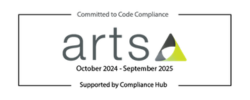NHS rolls out a world-first initiative providing Hybrid Closed Loop System to Thousands with Type 1 diabetes
Tens of thousands of children and adults living with type 1 diabetes across England are set to receive the ‘artificial pancreas’ – or Hybrid Closed Loop System – in a world-first initiative being rolled out by the NHS. This historic rollout will help thousands of people with type 1 diabetes in England to manage their condition.
This month the NHS started offering Hybrid Closed Loop Systems to individuals with type 1 diabetes. NHS England has provided local health systems with £2.5 million to start identifying people living with type 1 diabetes who are eligible and could benefit from the ‘artificial pancreas.’
The mass rollout of the artificial pancreas builds on a successful pilot of the technology by NHS England, which saw 835 adults and children with type 1 diabetes given devices to improve the management of their condition.
Dr Clare Hambling, National Clinical Director for Diabetes said: "This is another example of the NHS leading the way in healthcare, rolling out these groundbreaking devices across England over the next 5 years.”
“This transformative technology holds the power to redefine the lives of those with type 1 diabetes, promising a better quality of life as well as clinical outcomes.”
Likewise, Professor Partha Kar, NHS national speciality advisor for diabetes, praised the initiative: “The national roll out of Hybrid Closed Loop systems is great news for everyone with type 1 diabetes.
“The device detects your glucose levels, transmits the readings to the delivery system, known as the pump, which then initiates the process of determining the required insulin dosage.
“This futuristic technology not only improves medical care but also enhances the quality of life for those affected”.
NICE approved the NHS roll-out of the system last December, with the NHS later setting out a five-year plan, setting out a timeline for how local systems will provide the Hybrid Closed Loop system for eligible patients from 1 April 2024.
However, despite the promise of this extremely positive development, NHS bosses have warned it could take five years before everyone eligible had the opportunity to have one. This is due to sourcing challenges, in addition to train, and workforce shortages.
Regardless of the length of the roll out, the initiative still represents a historic achievement. As Colette Marshall, Chief Executive of Diabetes UK, remarked: “It’s incredibly exciting to see this technology being rolled out. This really is a landmark moment.”



)
)
)
)

)
)
.jpg/fit-in/1280x9999/filters:no_upscale())
.png/fit-in/1280x9999/filters:no_upscale())
)
)
)
